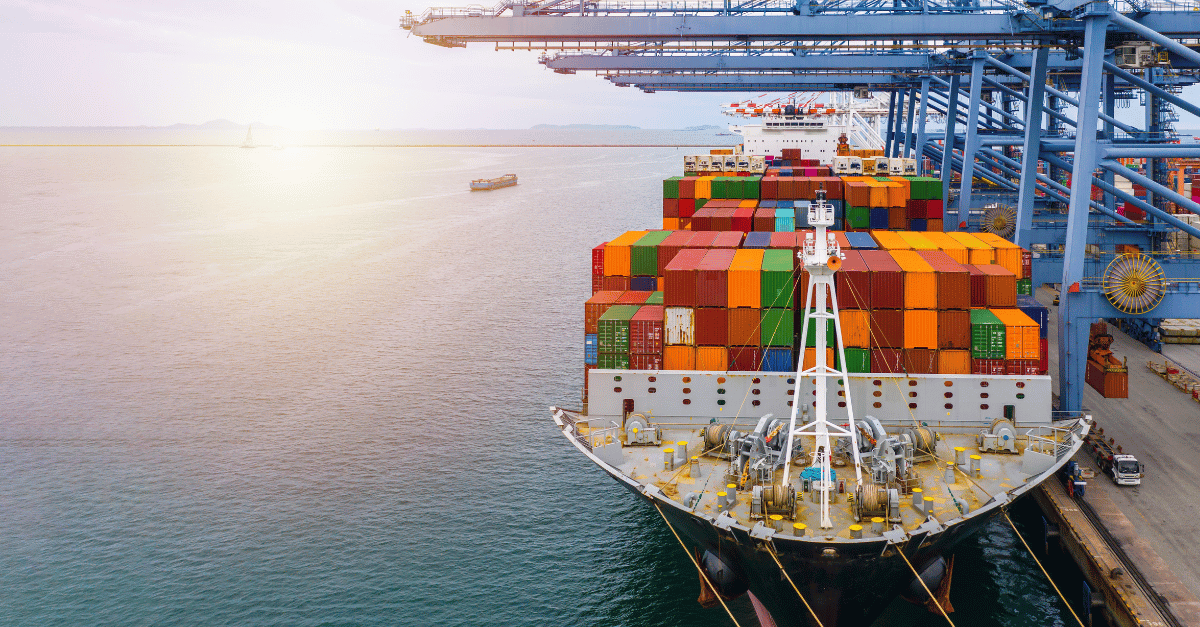The good news is that technology is offering a way forward. By adopting innovative tech solutions in freight forwarding operations, the shipping industry can significantly reduce its environmental footprint and pave the way for a greener, more sustainable future.
The Shipping Industry's Environmental Obligation
The importance of sustainability in shipping cannot be overstated. The maritime industry is responsible for approximately 90% of global trade, making it a crucial element of the global economy. However, it also contributes around 2.5% of the world's greenhouse gas emissions, with cargo ships burning heavy fuel oil, releasing pollutants into the air, and causing marine pollution through ballast water discharge.

The negative impacts of shipping on the environment are diverse, affecting air quality, marine ecosystems, and climate change. Consequently, the need for sustainable practices is pressing, as society as a whole recognizes the urgency of transitioning to a greener future.
By integrating tech solutions into freight forwarding operations, the industry can revolutionize its practices and contribute to mitigating these adverse effects.
Tech Solutions for Sustainable Freight Forwarding
Technology offers a plethora of innovative solutions that can revolutionize the way shipping and freight forwarding operations are conducted. Here are some key tech-driven initiatives that can significantly enhance sustainability in the industry:
Internet of Things (IoT):
IoT sensors can be installed on cargo ships, containers, and vehicles, providing real-time tracking and monitoring of shipments. This enables optimal route planning, minimizing fuel consumption, and reducing emissions. Moreover, IoT can help detect potential leaks or spills, ensuring immediate action to prevent environmental disasters.
Blockchain Technology:
By utilizing blockchain, the shipping industry can enhance transparency and traceability in supply chains. This reduces the risk of illegal activities, such as illegal fishing or wildlife trafficking, and promotes ethical sourcing. Additionally, blockchain can streamline documentation processes, reducing paper usage and administrative burdens.
Data Analytics and Artificial Intelligence (AI):
By leveraging big data and AI algorithms, shipping companies can optimize vessel performance, improving fuel efficiency and reducing emissions. AI-powered predictive maintenance systems can identify potential equipment failures, minimizing downtime and optimizing energy consumption.

Logistics Tech Benefits and Future Prospects
The integration of tech solutions in freight forwarding operations not only offers environmental benefits but also provides numerous economic advantages. By reducing fuel consumption and optimizing logistics, companies can significantly lower operational costs. Additionally, embracing sustainability can enhance a company's brand image, attracting environmentally conscious customers and stakeholders.
Looking ahead, continued investment in research and development is essential to advance sustainable technology in the shipping industry.
Governments, international organizations, and industry stakeholders should collaborate to create incentives, regulations, and standards that promote the adoption of tech solutions. This can foster innovation and accelerate the transition towards a more sustainable and environmentally friendly shipping industry.

Sustainability in shipping is a global imperative
The industry must proactively embrace innovative solutions to mitigate its environmental impact. By embracing technology, we can revolutionize the way shipping operations are conducted, leading to tangible environmental benefits.
From Internet of Things (IoT) sensors for optimized route planning to blockchain for enhanced supply chain transparency, the potential for positive change is immense. The integration of data analytics can further bolster sustainability efforts
The benefits extend beyond environmental preservation. Companies that embrace sustainable practices stand to gain a competitive advantage, attract eco-conscious customers, and reduce operational costs. The time to act is now, and our collective efforts can shape a greener future for the shipping industry.
Join 7ConNetwork in exploring the transformative power of tech-driven solutions in freight forwarding operations. Let's work together to pave the way towards a more sustainable and environmentally friendly shipping industry.